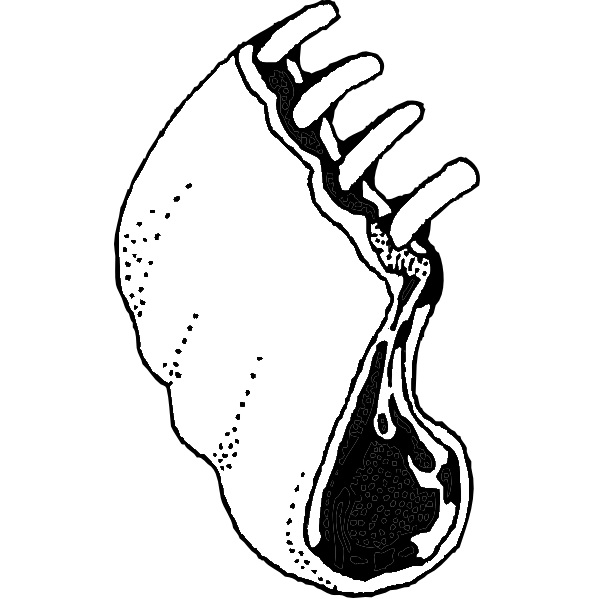The young man placed his hands over the table, as if blessing the ham biscuits, deviled egg plate, pasta salads, green bean casserole, cocktail shrimp and at least a dozen other dishes. “Life,” he pronounced, “is an endless cycle of choices and consequences.”
“Not endless,” said the old man beside him, his head shaking with a rhythm that might have been contrary or involuntary.
It was a potluck dinner to benefit the local parks commission, arranged by somebody’s friend. Table space was short, so they ate off paper plates on their laps. An old-fashioned evening out, the young man had thought as he left his apartment with a bucket of potato salad and twenty bucks for a contribution. He was right in one way, he found, when the door opened at a house where the median age of guests was sixty-five. But he was ushered in before he could think of a way to beg off, and the door behind him seemed to have disappeared. Fifteen minutes later, he was poking at three-bean salad next to a man who might’ve reminded him of a beloved uncle, except that he had none, and his family was held together by tolerance, at best. Growing up, he’d nurtured an alienation that B+ types mistook for homegrown genius.
The young man took a bite of something orange and wiggly and began again. “Statistically, people make bad choices 75% of the time.”
“You mean this cucumber salad?” A tremor passed through the old man’s arm, causing some of his salad to slide onto the floor.
“I’ll get that.” The young man bent over to pinch it up with a napkin. The old man thanked him, but then seemed to lose focus. He was grappling with a chicken wing, which apparently made him unable to talk, maybe even think.
The young man had more or less given up on conversation anyway, but still had a few more philosophical remarks to unload. “If only we could marry ideas instead of people.”
The words seemed to trigger the old man. He took a careful sip of wine and started talking about his dead wife, Mary. A flower in the asphalt of his life, he said, proof that true love still exists. The young man couldn’t help but interrupt: “True love seems so miraculous because of all the times it doesn’t work.”
“Maybe, but Mary was different. We met at a supper like this. She smiled at me over a plate of home-baked rolls.”
“Love at first bite, huh?” An easy joke he thought the geezer would appreciate. He continued, his mouth full of corn. “I had a girlfriend like that named Stacy, and it lasted all of three weeks.”
“You don’t understand. We were married for forty-two years.”
“Jesus.” The young man’s idea of a relationship was more like texting on the weekdays and sexting on the weekends. Next Tuesday, one of them would dump the other. “I guess you can tell me all about suffering.”
“Well, we didn’t have much money, but we got by.” His hand shook only slightly as he managed another sip of wine. “Loved her through thick and thin. . . .”
The young man heard “sick and sin” and perked up a bit. Other people’s pain took his mind off his own. But the old man was describing how he’d never been tempted by another, not when he had what he wanted.
“I want in seven different directions.” The young man pointed all over the room, at a plate of brownies and a platter that had held lemon squares, but also at a cloisonné vase and a plump woman in sandals. “That’s my problem in life.”
“Your problem—” the old man admonished, but paused when the young man had ceased listening. He reached out to tap the young man on the shoulder but ended up shaking him. His hand had taken on an agitation of its own. “You just haven’t tried the right dish.”
What seemed like heartfelt motion got the young man’s attention, and the words took on an oracular note. The young man traded in his plate for a new one and this time went for the ribs, tried the pepper slaw, even helped himself to something encased in cherry Jell-O. When he was finally done, he stared up at the room’s faded chandelier, which looked like a crystal octopus. Each facet refracted dimly against another, the angles multiplying as if the universe were a chain of half-lit options. The light led him on, and eventually out the door. Long after he left the party and late on the street, the young man followed lamp posts, passing through each yellow glow and lingering under the few outside darkened restaurants. He studied the menus posted behind glass and tried to take them all in. More? More. He’d sampled everything at the table. Now what?
